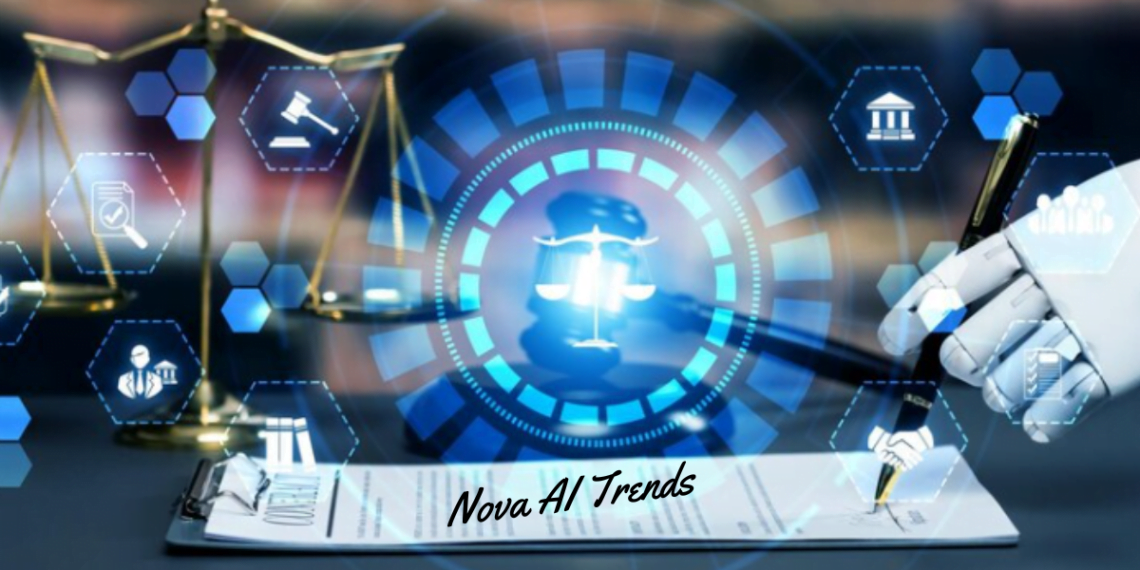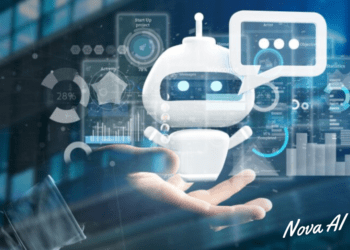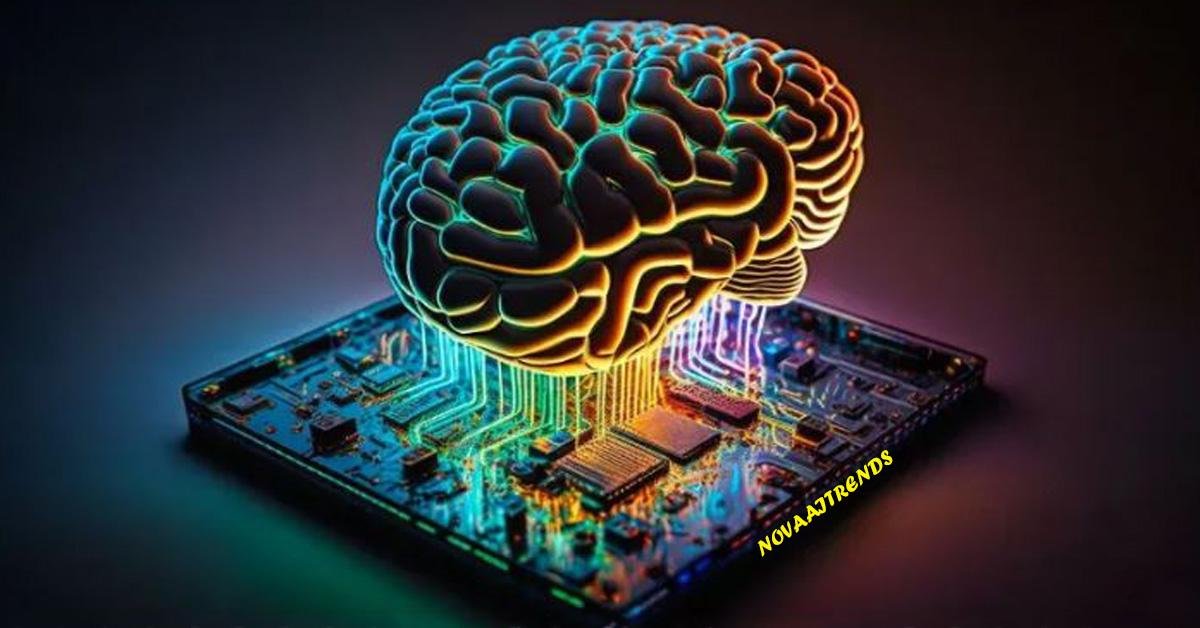Artificial Intelligence and Law: Navigating the Future
Introduction
Artificial Intelligence (AI) has emerged as an influential catalyst across diverse industries, with the legal domain standing prominently amidst its transformative impact. As we traverse the intricate interplay between Artificial Intelligence and law, the fusion of avant-garde technology with legal norms becomes discernibly instrumental in reshaping the contours of legal practice.
- Artificial Intelligence and Law: Navigating the Future
- Introduction
- Unfurling the Saga of AI in the Legal Domain
- AI’s Incursion into Legal Exploration
- AI’s Prowess in Contract Scrutiny and Diligence
- Prognostic Analytics and Decision Architecture
- Navigating Challenges and Ethical Contemplations
- Embedding AI in Legal Practices
- AI’s Impression on Legal Pedagogy
- Glimpsing into the Prospective Landscape of AI and Law
- Concrete Instances from Reality
- Ripple Effects on Legal Professionals
- Public Sentiment and Confidence in AI
- Regulatory Framework for AI in Law
- Symbiosis Between AI and Juridical Experts
- Culmination
- Frequently Asked Questions (FAQs)
Unfurling the Saga of AI in the Legal Domain
To recount the evolutionary narrative of AI within the legal sphere demands acknowledgment of its historical import. From nascent endeavors in automating legal processes to the contemporary era of intricate algorithms, AI’s trajectory has been nothing short of remarkable. Milestones, such as the advent of natural language processing and machine learning algorithms, have charted the course for AI’s seamless assimilation into the fabric of legal practices.
AI’s Incursion into Legal Exploration


AI’s Prowess in Contract Scrutiny and Diligence
Traditionally labor-intensive tasks like contract scrutiny and due diligence have undergone rationalization through the application of AI. Machine learning algorithms excel in navigating intricate contractual language, discerning potential hazards, and expediting the scrutiny process. This not only augments efficiency but also mitigates the prospect of oversights in intricate legal documents.
Prognostic Analytics and Decision Architecture
The infusion of prognostic analytics into legal practices empowers legal professionals with an elevated precision in foreseeing legal outcomes. AI algorithms meticulously analyze voluminous datasets, discern patterns, and provide invaluable insights, aiding legal practitioners in devising judicious strategies. This prophetic capacity enhances the overall efficacy of legal maneuvers.
Navigating Challenges and Ethical Contemplations
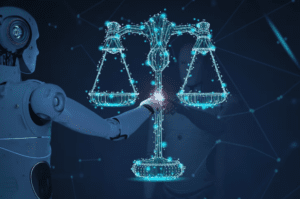

Embedding AI in Legal Practices
For law firms pondering the assimilation of AI technologies, a strategic blueprint is imperative. The integration of AI mandates a comprehensive grasp of its advantages and pitfalls. From automating routine tasks to refining case outcomes, AI presents an array of benefits, but its assimilation should be informed by a lucid understanding of potential challenges.
AI’s Impression on Legal Pedagogy
Preparing the forthcoming cohort of legal professionals for an AI-dominated legal milieu is an obligation that cannot be overlooked. Law schools are progressively integrating AI into their curricula, equipping students with the acumen to navigate the evolving nexus of law and technology. The objective is to furnish future legal practitioners with the tools requisite for the proficient utilization of AI in their legal pursuits.
Glimpsing into the Prospective Landscape of AI and Law
As we cast our gaze into the future, it becomes evident that AI will perpetuate its pivotal role in configuring the legal landscape. Emerging trends, such as AI’s involvement in dispute resolution, virtual legal aides, and blockchain-driven smart contracts, are poised to redefine the contours of legal service delivery. The ongoing metamorphosis of AI in law portends transformative upheavals.
Concrete Instances from Reality
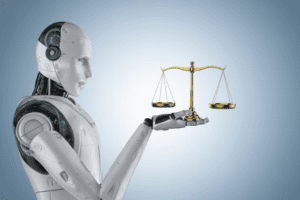

Ripple Effects on Legal Professionals
The amalgamation of AI inevitably raises queries regarding its impact on the roles of legal professionals. While AI complements certain tasks, it concurrently opens new vistas for legal practitioners to concentrate on intricate, high-value activities. The evolving role of legal professionals in conjunction with AI accentuates the potential for upskilling and specialization in the legal domain.
Public Sentiment and Confidence in AI
Comprehending and addressing public sentiment is pivotal for the widespread acceptance of AI in the legal framework. Fostering trust through transparent AI practices, elucidating to the public the advantages, and actively mitigating biases contribute to cultivating confidence in the utilization of AI in law.
Regulatory Framework for AI in Law
The regulatory terrain encircling AI in law is in a state of flux. Current regulations and directives are undergoing adaptations to accommodate the idiosyncratic challenges posed by AI. Proposed frameworks underscore the imperative of responsible AI application, ensuring that legal practitioners and technology developers operate within ethical confines.

Symbiosis Between AI and Juridical Experts
Effective collaboration between AI experts and legal professionals is paramount for the successful integration of AI. Establishing lucid communication channels, comprehending each other’s expertise, and fostering a collaborative ethos contribute to optimizing the advantages of artificial intelligence and law.
Culmination
In summation, the symbiotic relationship between artificial intelligence and law is redefining the modus operandi of delivering and consuming legal services. From enriching research capacities to revolutionizing decision-making methodologies, AI’s influence on the legal sector is profound. In our transformative journey, maintaining a contemplative and ethical stance is vital for unlocking AI’s full potential in advancing justice.
Frequently Asked Questions (FAQs)
Is AI replacing human lawyers?
AI is not replacing human lawyers but rather augmenting their capabilities. It automates routine tasks, allowing legal professionals to focus on more complex and strategic aspects of their work.
How can AI address bias in legal algorithms?
Addressing bias in legal algorithms involves ongoing scrutiny, transparency, and diverse data sets. Developers and legal experts work collaboratively to mitigate biases and ensure fairness.
What steps can law firms take to integrate AI effectively?
Law firms can start by identifying specific automation tasks, investing in user-friendly AI tools, providing staff training, and staying informed about emerging AI trends in the legal sector.
Are there ethical concerns with using AI in legal practices?
Ethical concerns include biases in algorithms, potential job displacement, and privacy and data security issues. These concerns underscore the importance of responsible AI use.
How is AI influencing legal education?
AI influences legal education by being incorporated into curricula to equip future lawyers with the skills needed to navigate an AI-driven legal landscape effectively.

